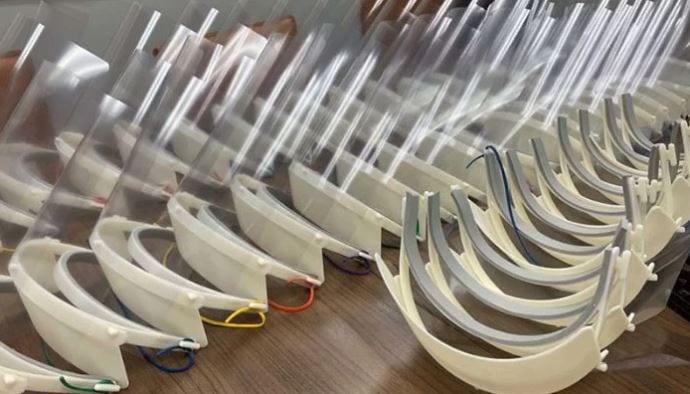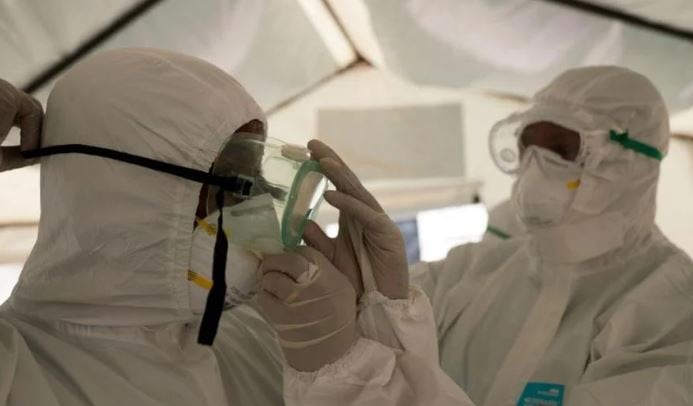A recent academic paper has revealed that researchers from the University of Sussex and the Olabisis Onabanjo University in Nigeria turned to 3D printing and open-source designs to help deal with a shortage of personal protection equipment (PPE).
More from the News
Like many countries, this shortage arose in Nigeria during the Covid-19 pandemic. Andre Maia Chagas from the University of Sussex, and Dr. Royhaan Folarin from the Olabisi Onabanjo University in Nigeria explained the project in an article that was published in the latest issue of the monthly scientific journal PLOS Biology.
The Covid-19 pandemic hit the entire world without a warning and caused damage that still affects our everyday lives. However in times like now, when the pandemic seems to be coming to a state where everyone can slowly start to recover and process all that has been turning our lives upside down, we start to learn how the challenging situation impacted other parts of the planet. When the coronavirus found its way to Africa, more precisely Nigeria, it didn’t take long for the situation to turn problematic. The African country, given its population’s poverty and its unstable economy, quickly ran short on personal protection equipment (PPE) for its medical staff, which, as you know, is very important when dealing with the contagious virus.

In an effort to solve the problem as quickly as possible, Dr. Andre Maia Chagas and Dr. Royhaan Folarin together searched for a possible solution. The researchers turned to additive manufacturing, which presented a great opportunity to not only produce 400 pieces of urgently needed PPE on time but also enabled cheaper and more sustainable production. The team managed to obtain the approved PPE designs via open-source, and without hesitation, 3D printed equipment for the local community to use, which turned out to cost less than half of what the usual equipment would have cost.
Dr.Andre Maia Chagas, who works as a Research Bioengineer at the University of Sussex, commented on the project, noting, “Through knowledge sharing, collaboration and technology, we were able to help support a community through a global health crisis. I’m really proud of the tangible difference we made at a critical time for this community. As PPE was in such high demand and stocks were low, prices for surgical masks, respirators and surgical gowns hiked, with issues arising around exports and international distribution. We quickly realized that alternative means of producing and distributing PPE were required. Free and open-source hardware (FOSH) and 3D printing quickly became a viable option.”

3D Printing Helped Charities to Provide PPE
The collaboration between the two researchers initially came together through a charity network called TReND in Africa. The initiative, brought to life by the University of Sussex, supports scientific capacity building in developing countries in Africa. The University’s experts work together with local researchers or doctors and share their knowledge in innovation, technology, and medicine.
“During the pandemic, we saw the successful printing and donation of PPE in the Czech Republic by Prusa Research and it became a goal for me to use the training I had received in previous TReND in Africa workshops to help impact my immediate community in Nigeria.” – Dr. Royhaan Folarin, Neuroscientist and lecturer of anatomical sciences at Olabisi Onabanjo University
The project’s success prompted other professionals to further test and optimize the process since the 3D printer the team used was not built for large-scale serial manufacturing. Ultimately, the process was further advanced for industrial production, and companies started to use 3D printing technologies to produce and ship PPE to places in need around the world. You can find out more about TReND in Africa HERE.
Subscribe to AM Chronicle Newsletter to stay connected: https://bit.ly/3fBZ1mP
Follow us on LinkedIn: https://bit.ly/3IjhrFq
Visit for more interesting content on additive manufacturing: https://amchronicle.com/


